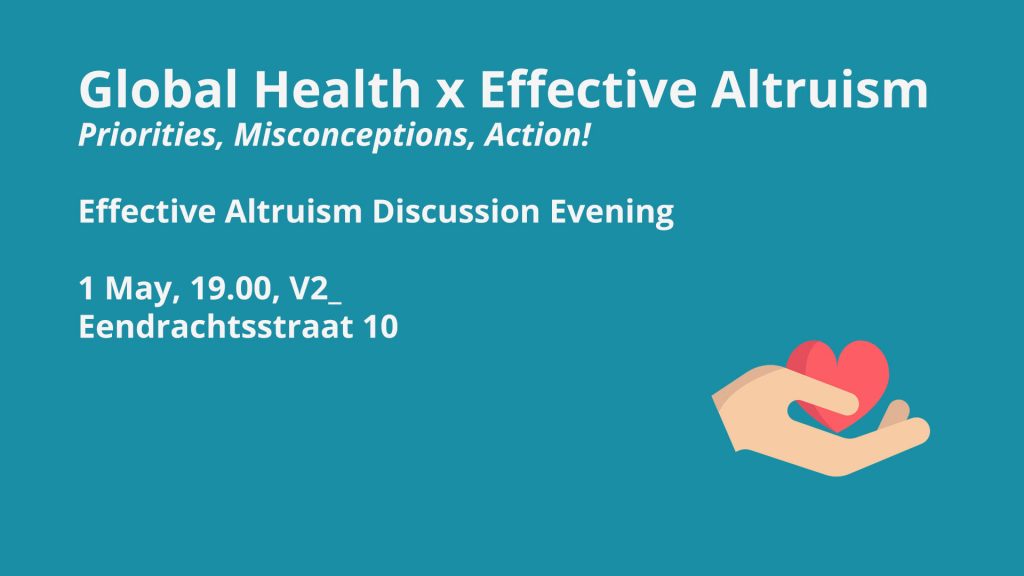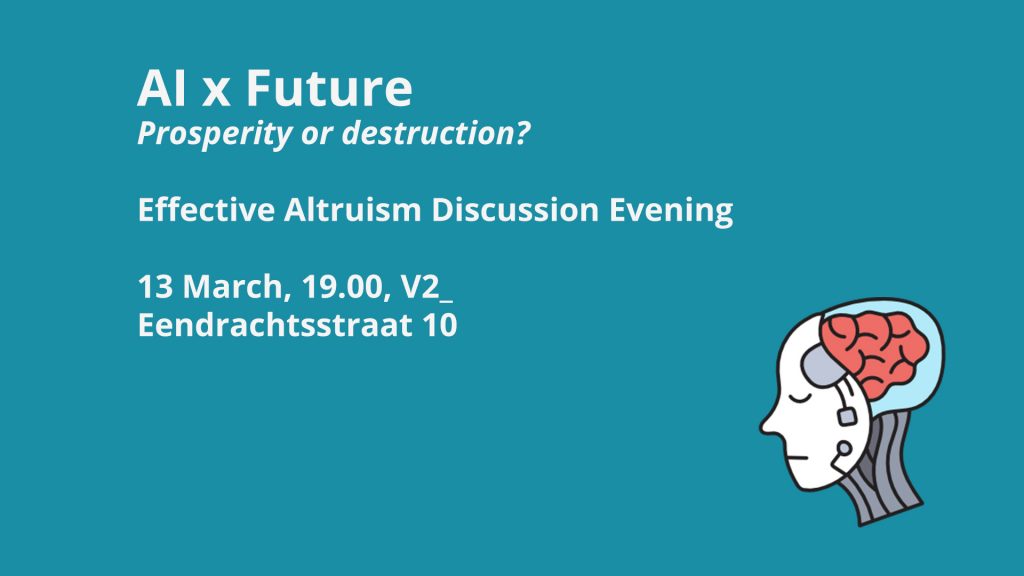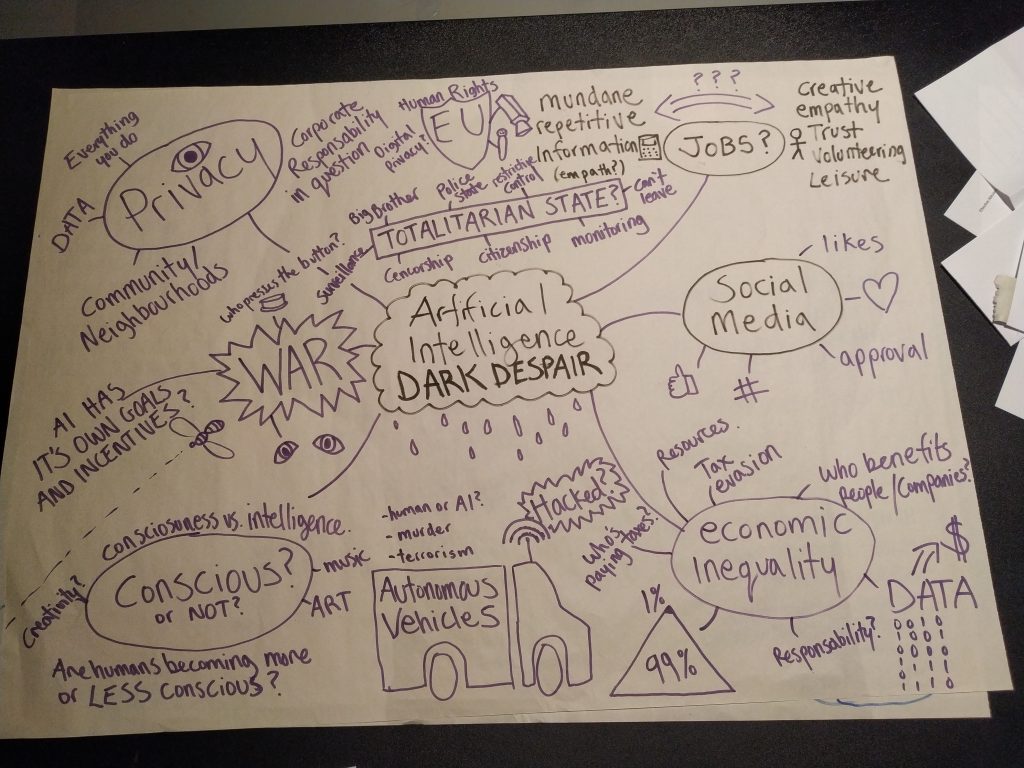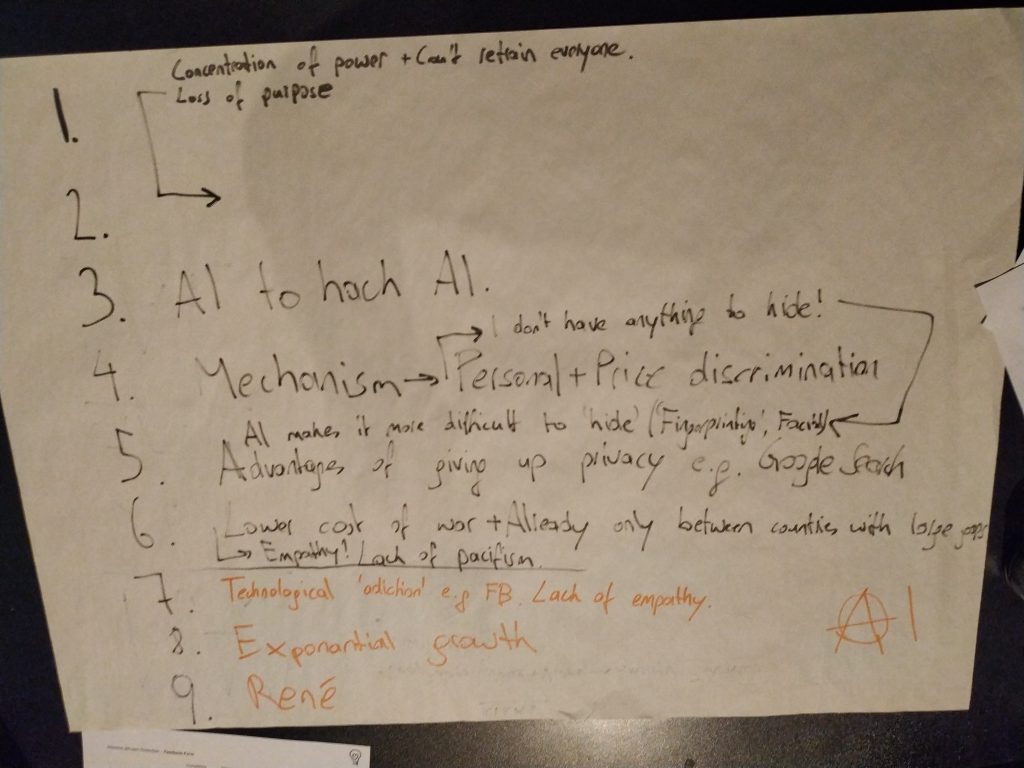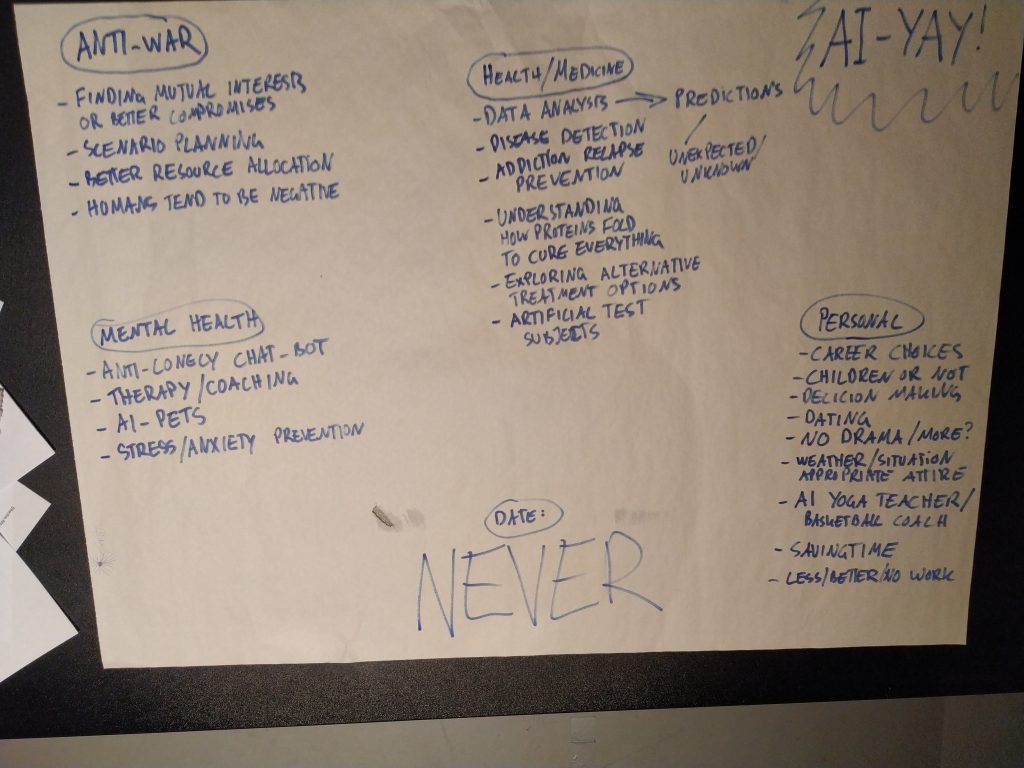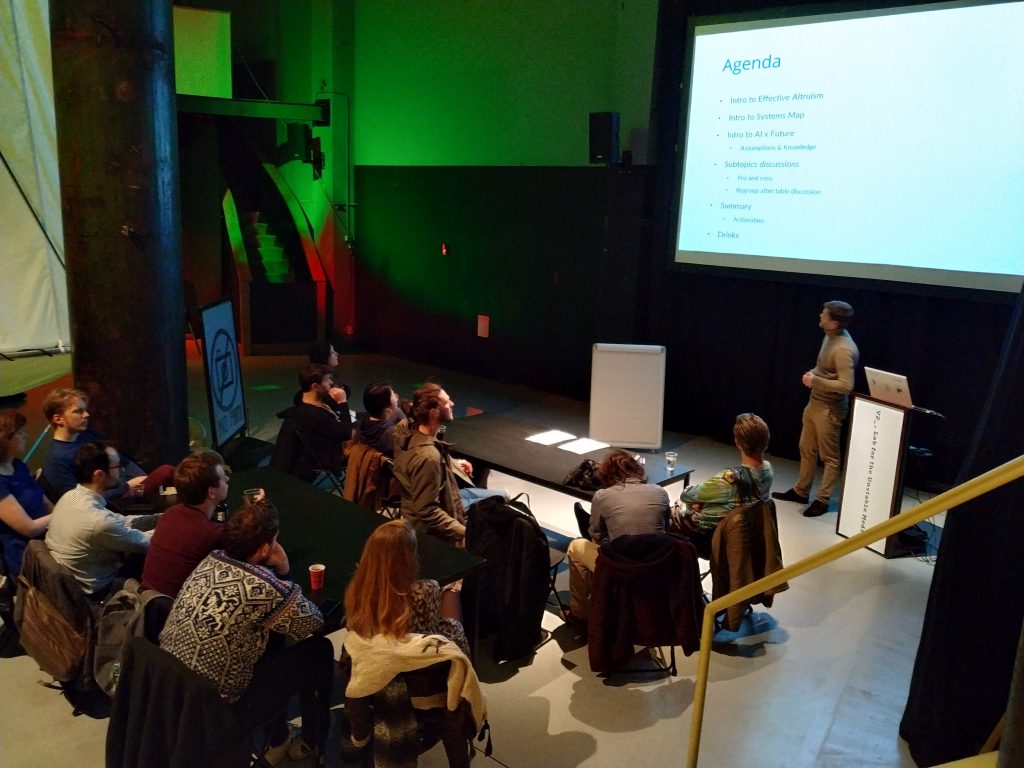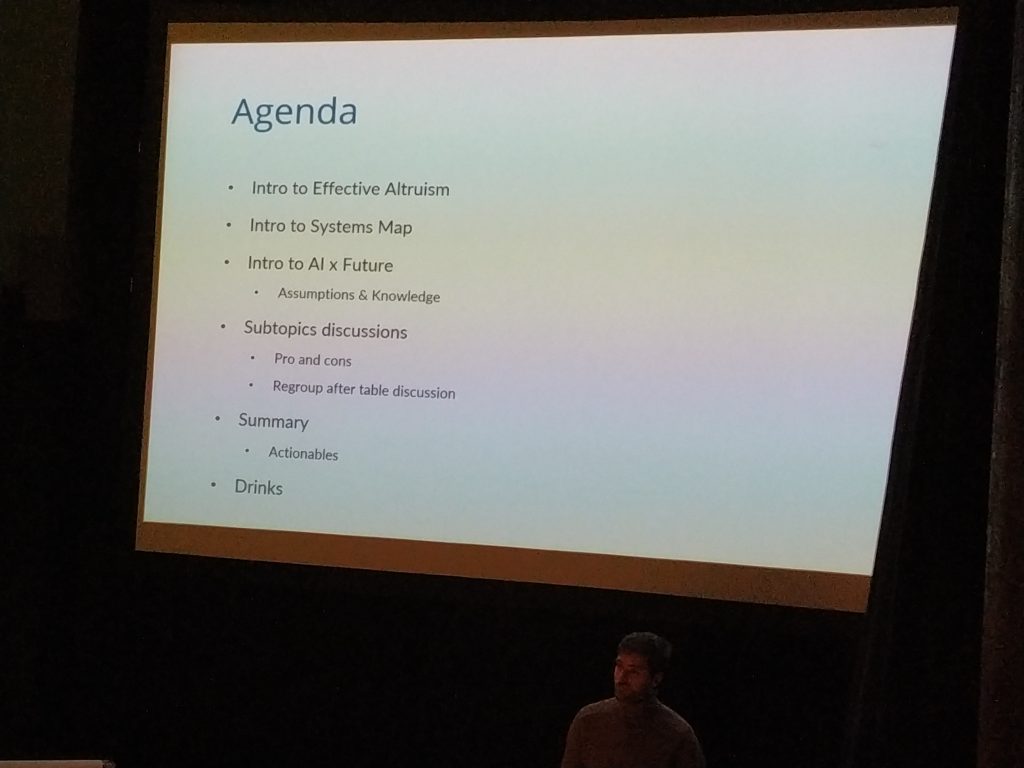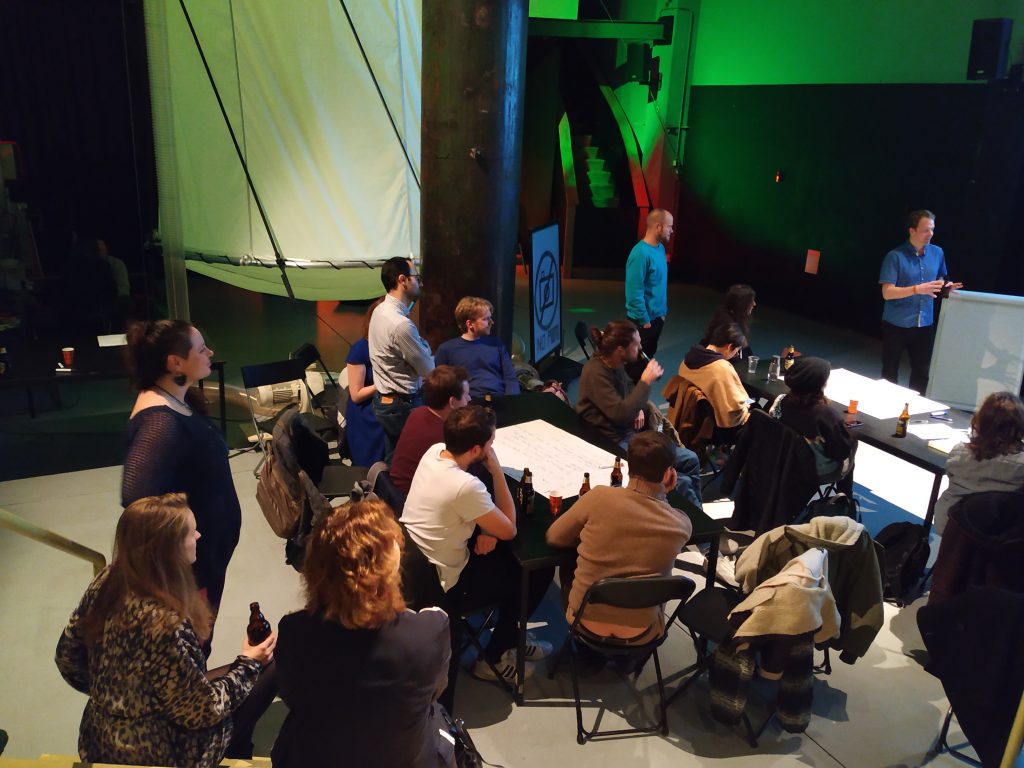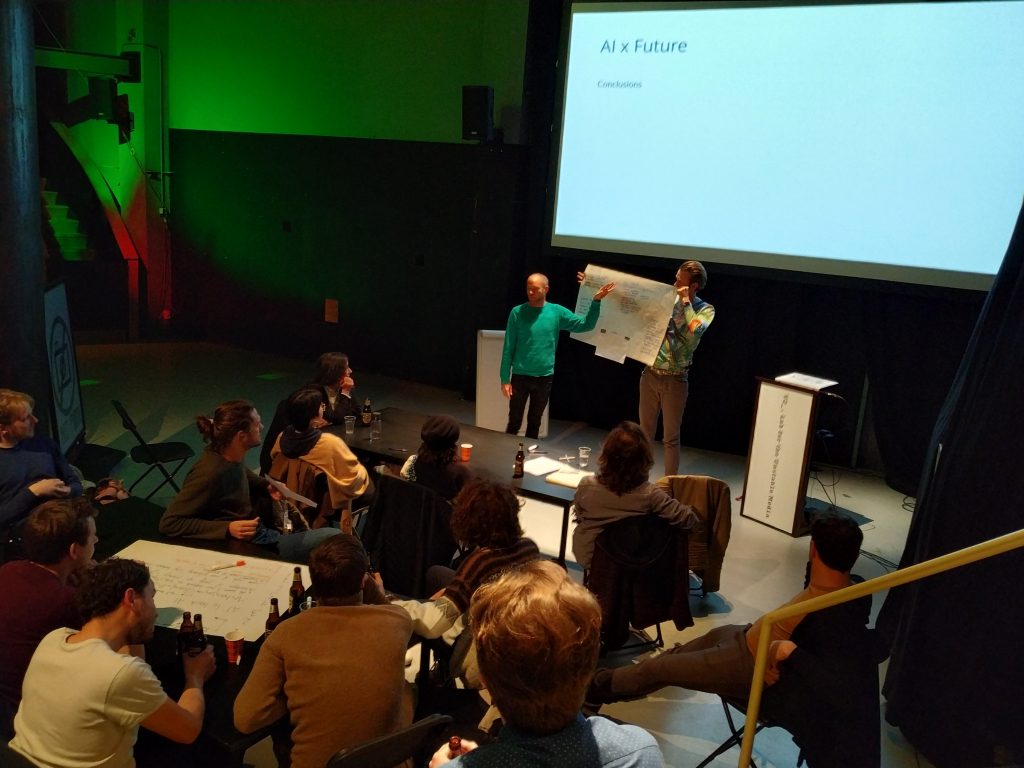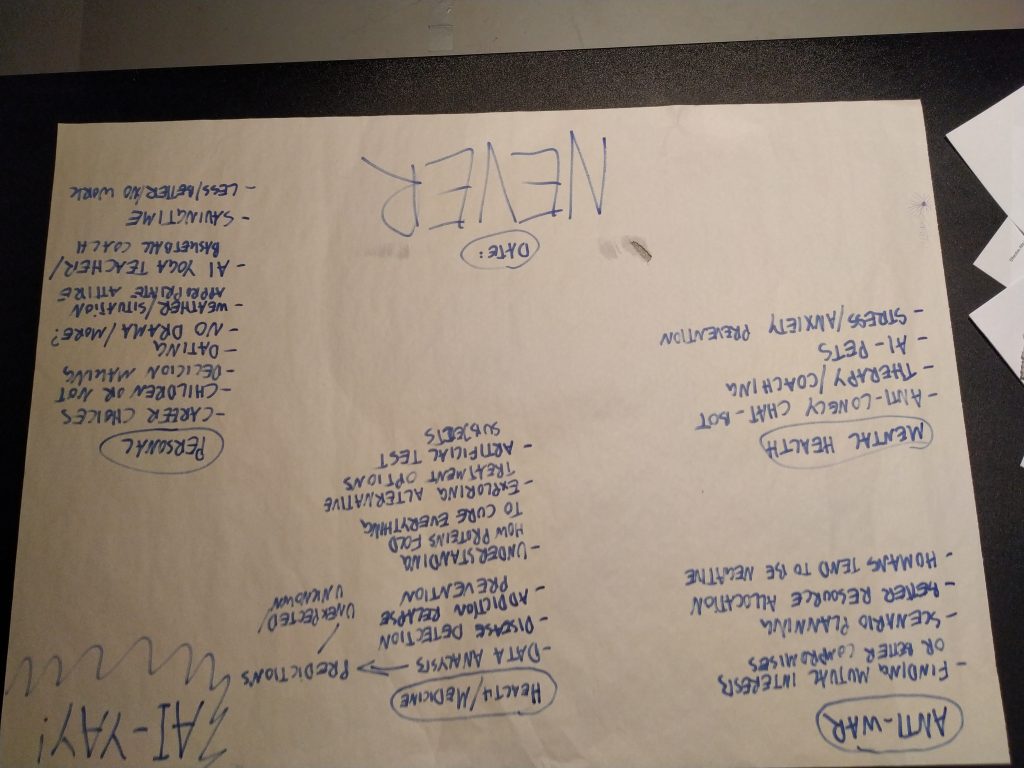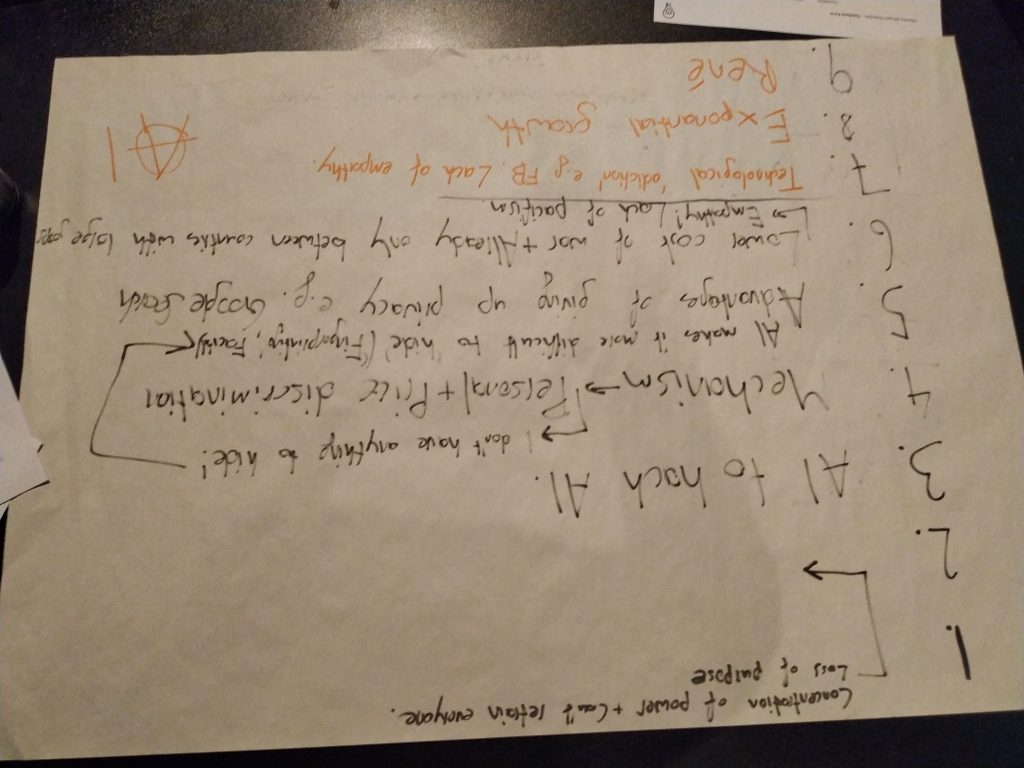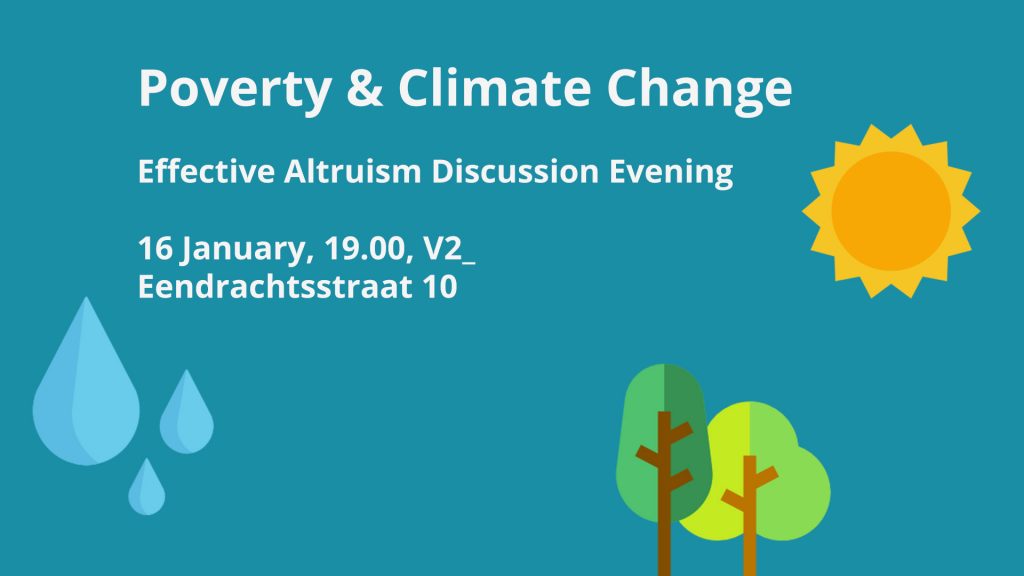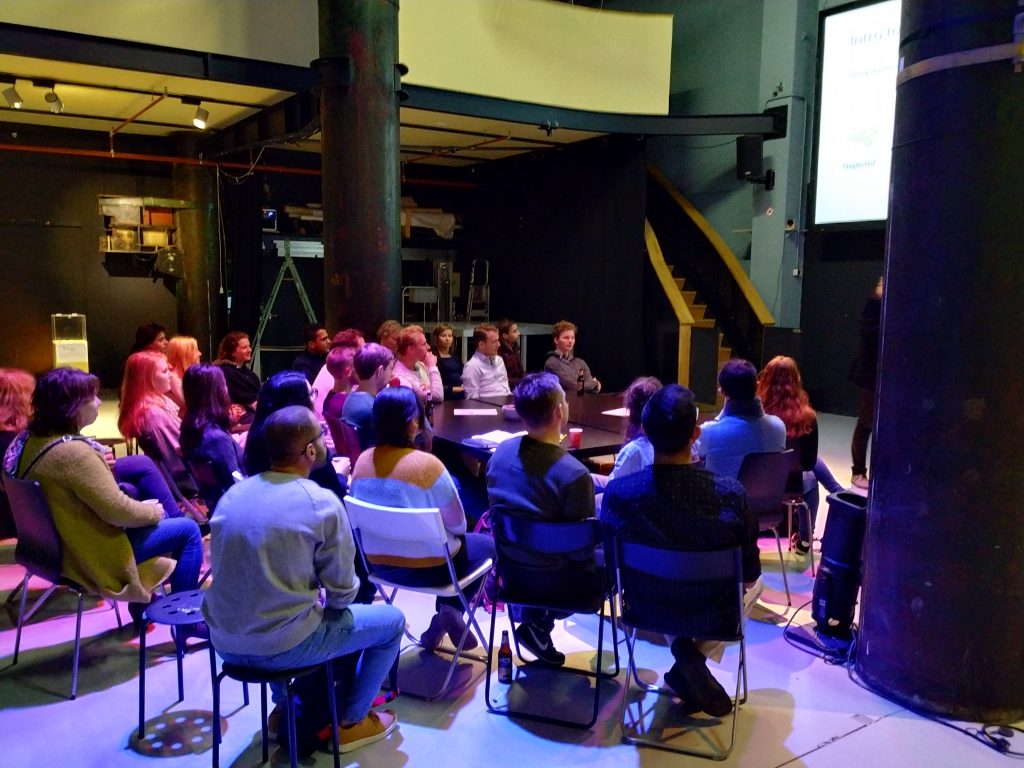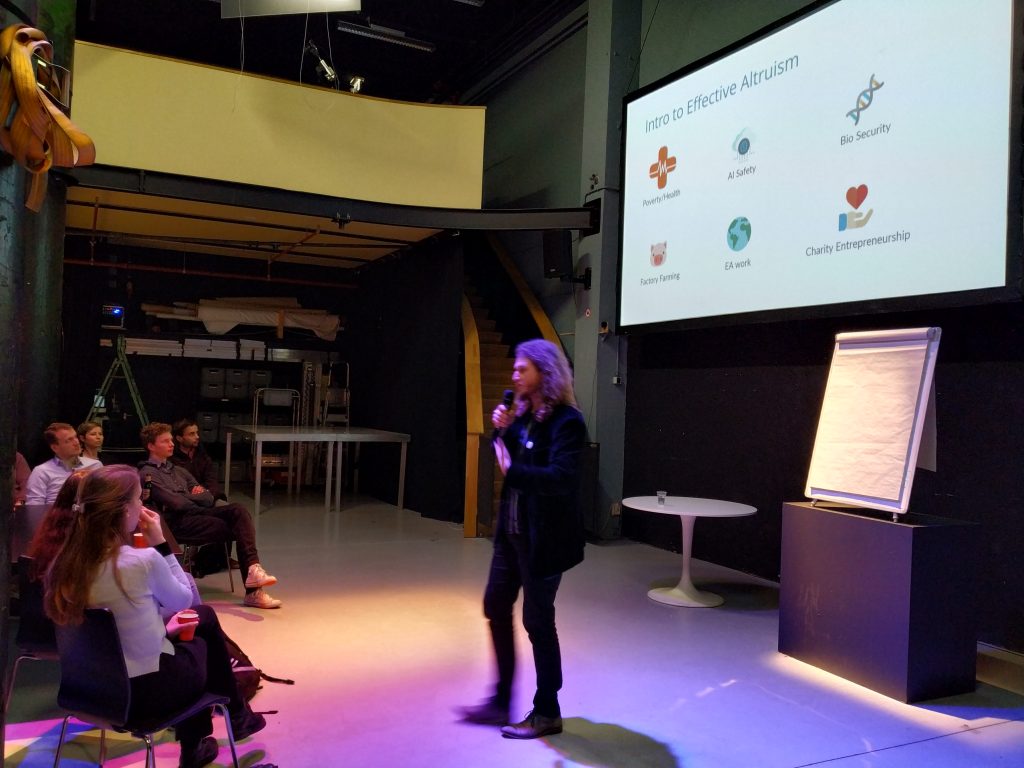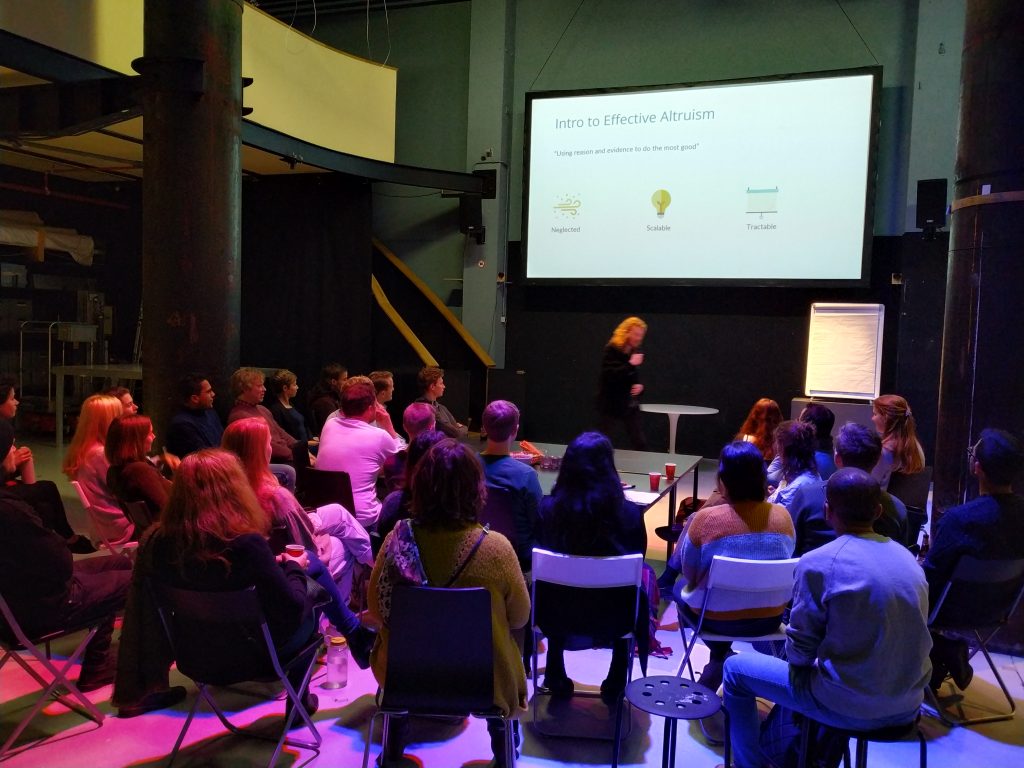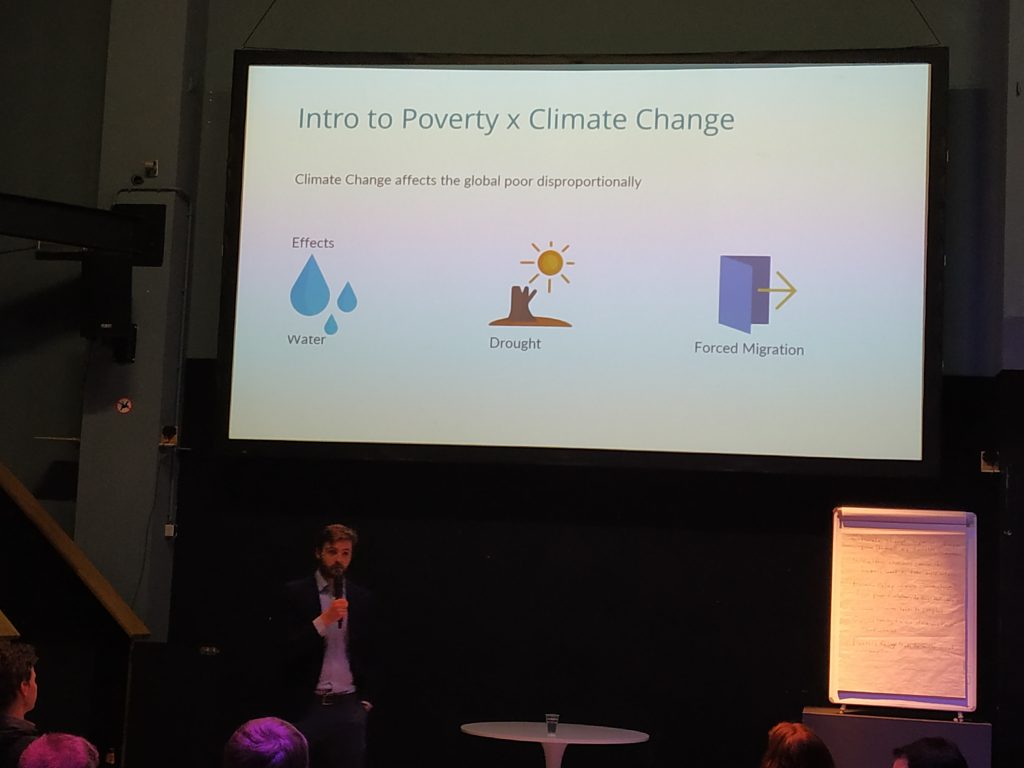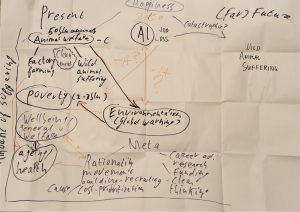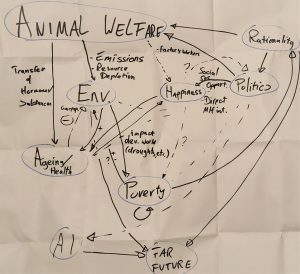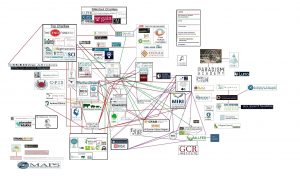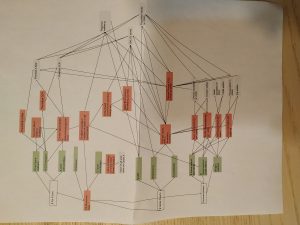Sustainability and Consumption
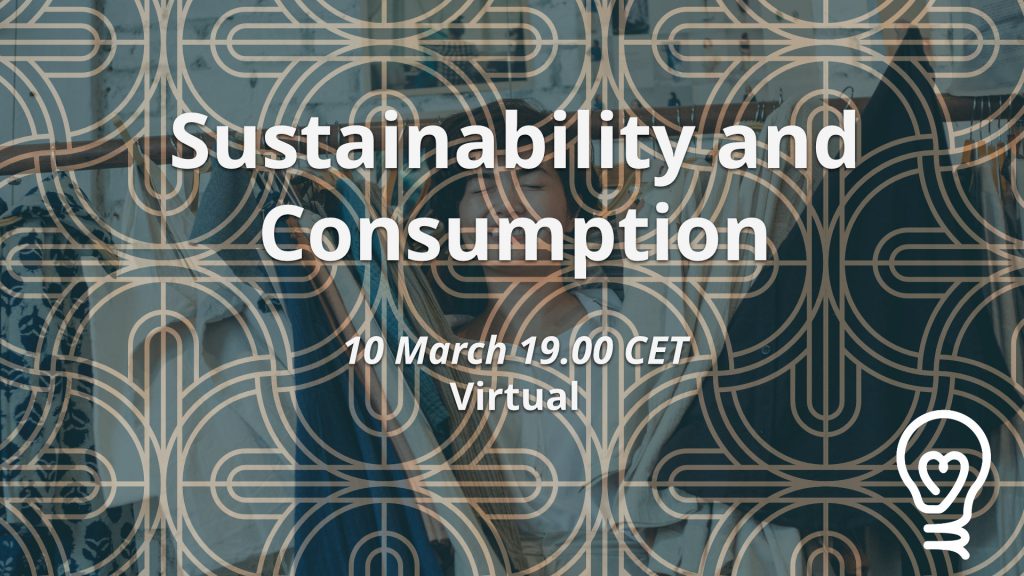
On Wednesday 10th of March 2021, the Effective Altruism (EA) Rotterdam group hosted their 16th reading & discussion group.
This is our deeper dive into EA topics to learn and take action to change the world for the better.
Join our next meetup!
Every SECOND WEDNESDAY OF THE MONTH
The topic for this event was Sustainable Consumption.
During the evening we discussed ways consumption (buying/using products/services) and sustainability are at odds. We looked at this through a personal and societal (global CO2) lens. And we asked what, if anything, we can or should do.
The presentation was held by Laurin and was interjected with a lively discussion of these topics.
The event was digital and at its peak was attended by eight people.
Here are the presentation, questions, reading materials, and my personal summary of the event.
Go to our Meetup page to sign up for our next event.
Presentation of Sustainability and Consumption
We started the evening with a presentation by Laurin. The round-table discussion was held after each third of the presentation.
1. Individual Consumption or Footprint
The average US citizen consumes (or rather, produces) 16.3 Tons of CO2 (or CO2 equivalents) per year.
If you’re really conscious (as you can see in this YouTube video) about your consumption, you may cut that in half to about 6.9 Tons per year.
- Noted should be that he could even cut this number in half again if he didn’t take one long flight each year
If you want to reduce your CO2 footprint, Laurin had the following tips:
- You can roughly half the food emissions by changing to a predominantly plant-based diet
- 1.5 Tons / Year
- You can drastically improve heating/cooling and home energy emissions by using renewable energy
- 2 Tons / Year
- Avoid driving a car or flights
- 2.5 Tons / Year
- 0.25 Tons / Hour Flying (e.g. 8 hours flying = 2 Tons (and 2 for the way back))
- Buy less, buy things that last, buy second hand
2. Global CO2
Laurin showed the difference between the target of 1.5 ton per year and what is actually happening. Even if we’re saving on emissions, we’re not getting there anytime soon.
Developing countries like India are already surpassing this target, and that should be celebrated in some sense.
And some people have a larger CO2 footprint than others, such as Paris Hilton.
The pollution and where we can save aren’t mapped one-on-one. There is a lot we can save with food (not throwing it away in many places in the food chain), but less in buildings and transport.
3. What To Do About Greenhouse Gas Emissions?
There are many things we can do that have a large impact. The solutions (see slide 11) have to do with land use, nuclear energy, and refrigerant management. But not with ridesharing, trains, or green roofs.
Round-Table Discussion
1. Have you changed anything in your life to reduce your carbon footprint?
During the meetup, we discussed changes such as going vegetarian or vegan and that being motivated (in part) by environmental reasons. We also discussed the need for policy changes, as that can drive personal choices (e.g. via taxes).
—
I’ve calculated my own carbon footprint at CarbonFootprint.com and came to the following numbers and realizations:
- Total 8.96 t p/y
- House 2.05 t p/y
- Electricity 300 kWh = 0.14 tons per month
- Natural gas 1136 kWh (from 100 m3 with this calculator) = 0.21 tons
- But: divide by 2 as I’m living together = 0.17 t p/m = 2.04 t p/y
- And get green energy but haven’t looked at the impact of that
- Flights 3.73 t p/y
- Example flight to Asia, beaches of Bali (with radiative forcing, from Amsterdam) 3.73 t
- Example flight (not included) to Istanbul 0.62 t
- Example flight (not included) to Vancouver Canada 2.15 t
- Car X (no car, only very occasional rental for IKEA trip or the like)
- Motorbike 0.31 t p/y
- (aspirational, working on drivers license)
- Based on 4000 km on a medium motorbike
- Apparently, only 1.3% of motorbikes are currently electric, but if you’re using renewable energy, it should be near emissions-free
- Bus & Rail 0.07 t p/y
- Based on 2000 km per year in train
- (could be lower if using motorbike)
- Secondary 4.58 t p/y
- Food (vegetarian, but mostly vegan) 1.4 t (or 1.06 t)
- Mortgage 1.46 (hmm, don’t know why that is, if it’s because of the house or the money that then is invested in CO2 producing things?)
- Computer/tech stuff 0.48 t (based on €500 per year)
- Recreational, cultural, sports 0.79 t (based on €3000 p/y)
- Total ideas
- A large part is contained in flying, something that will of course increase over the years (for the world as people get richer)
- Motorbike doesn’t really matter much
3. Global CO2 and what to do?
After showing that the global target is 1.5 ton per year, we understood that changing one’s behaviour is not going to cut it. Negatively, it means that we will not get there. Positively, it means that by changing your behaviour (and influencing others to do so too), we’re giving ourselves more runway. More runway for newer technologies, carbon capture, and other things to deal with/prevent climate change.
One example of the positive impact of personal choice was that of cultured meat. There is a demand (from rich people) that is driving the innovation, and something in which the Chinese (largest growing market for meat) government is now investing (source, via 80k podcast).
3. What Should We Do?
The discussion boiled down to the following recommendations:
- Donate (you can more than offset your impact)
- See recommendations here
- Estimates are between a few cents and $5 per ton CO2
- Influence politics/policies (largen your impact)
- Vote green/progressive
- Reduce (it’s still part of the solution, and probably your identity too)
- Flying is the big one, but know that your impact with donations can be 100x larger so don’t get bogged down in the details
Putting sustainability into context
Air pollution is killing 7 million people each year. So this might be a more pressing problem, yet also something that correlates with adding more green energies and removing polluting energies (both CO2 and local-level pollutions).
Compared to global health, the donation impact is probably smaller per QALY (added qualitative year), but that doesn’t mean we shouldn’t do anything about climate change.
Conclusion
It was another great evening that thought us many things about our personal impact, what we can do (and can’t), and what projects may be effective in reducing CO2 emissions.
Resources
✦ https://m.youtube.com/watch?v=bvhXtOps4MM (video, 12 min, My Carbon Footprint is Broken)
✦ https://www.effectivealtruism.org/articles/johannes-ackva-an-update-to-our-thinking-on-climate-change/
✦ https://forum.effectivealtruism.org/posts/yhKnbcX6YmTgLpfwJ/climate-change-donation-recommendations
✦ https://medium.com/@tsloane/applying-effective-altruism-to-climate-change-e2d703f6414f
✦ https://www.carbonfootprint.com/calculator.aspx

